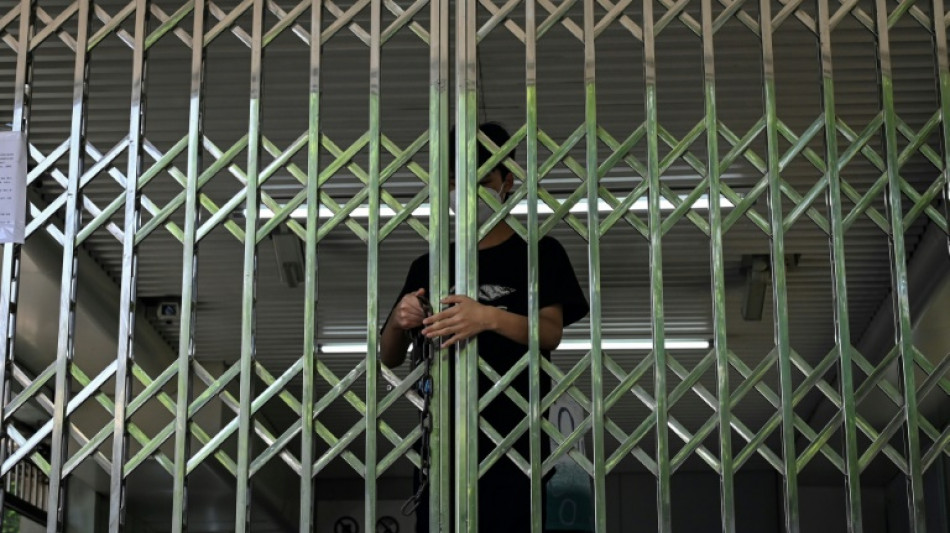

Beijing closes dozens of subway stations, extends Covid restrictions
Beijing closed dozens of subway stations and expanded Covid restrictions Wednesday, constricting movement around the Chinese capital despite logging only dozens of daily cases.
China has been battling its worst coronavirus flare-up since the early days of the pandemic, with most cases found in the business hub of Shanghai.
Scenes of chaos and anger at weeks of stay-at-home orders in Shanghai have alarmed people in the capital, who fear their city may be next.
On Wednesday Beijing reported 51 local infections, five of them asymptomatic, while Shanghai reported nearly 5,000 -- part of a downward trend as the hub loosens some restrictions.
But municipal government spokesman Xu Hejian told reporters Wednesday that the capital would "temporarily extend" its tightened Covid curbs -- including a ban on restaurant dine-ins and suspension of entertainment venues and gyms.
Officials initially said the ramped-up curbs would apply to the traditionally busy Labour Day break ending Thursday.
"The whole district of Chaoyang and companies in areas where public transport operations have been adjusted will implement home office from May 5," Xu added, referring to Beijing's most populous district.
Housing compounds where infections have been reported have already been locked down, while Beijingers have started stocking up on essentials over worries they could suddenly be ordered to stay home.
The China World Trade Center -- an office and shopping complex -- was also temporarily closed this week.
Meanwhile, the city's subway operator and officials announced the closure of about 60 stations Wednesday -- around 18 percent of the network -- many of them near locked down areas.
"The entrances and exits of stations will be closed... but transfers can be done within the stations," said a notice on the Beijing Subway's WeChat page.
But authorities also appeared to ease some rules, with Xu saying that eligible international arrivals to Beijing could do 10 days of centralised quarantine and a week of home isolation, down from 21 days of quarantine.
'Semi-closed state' -
"I think the city is already in a semi-closed state," said one Beijing resident in a sealed compound who declined to be identified.
"There is no timetable for when our lockdown will be lifted, and more places are being sealed," he told AFP, saying freedoms were increasingly being limited.
Another Beijinger, aged 35, said he was buying groceries online to avoid contact with people at supermarkets.
"No one can really tell how long the restrictions will last... but I understand the reasoning," he said.
Elsewhere in China, the central city of Zhengzhou has also ramped up Covid controls, with residents in the city centre ordered to remain in their housing compounds or at home.
Authorities in Shanghai have struggled to get fresh vegetables and other essentials to people in lockdown and patients have reported trouble accessing non-Covid medical care.
Local officials have been accused of bungling their response to the virus and being overzealous with the implementation of restrictions.
Hundreds have died of Covid in Shanghai, many of them unvaccinated elderly people.
O.Wagner--MP




